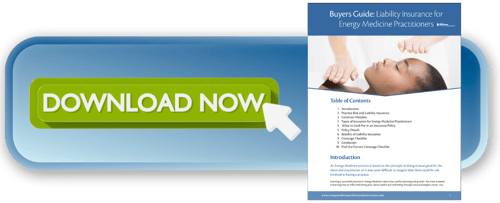Most Effective Website Platforms for Energy Practitioners: Our Take as of 2025
May 16th, 2025
8 min read
By Anya Charles

A beginner-friendly review of top website builders to help you create a professional and aligned online presence.
There are hundreds—if not thousands—of website platforms out there. Some are fresh and simple, others are feature-packed and complex. While many are built with small businesses in mind, the question that we would like to address is this: which website platform is the best for someone in the healing arts?
With so many options, it is hard to choose, and easy to get decision paralysis! So how do you pick the right one?
Your website, if you choose to have one, will likely become the digital home of your practice. It’s where people will come to learn about your work, feel your energy, explore whether your approach aligns with what they’re looking for, and book your services.
There's no aone-size-fits-all answer. What works beautifully for one energy practitioner might not sit quite right for another.
Today, we’re not here to tell you “the best” platform (as it’s very subjective!) but we are here to help you explore a small corner of what’s out there.
We’ll walk you through a few of the most popular platforms we’ve seen energy healers use successfully, highlight some features, and give you a little more context to decide what’s right for you.
-Apr-16-2025-05-08-01-9271-PM.png?width=244&height=189&name=HubSpot%20Banners%20for%20EMPA%20(2)-Apr-16-2025-05-08-01-9271-PM.png) Hmm, Do I Need a Website? (Here’s Why It Might Be Worth It)
Hmm, Do I Need a Website? (Here’s Why It Might Be Worth It)
Before we jump into our take on web platforms, let’s take a moment to talk about why having your own website can be a powerful step for your healing business.
A lot of energy practitioners start their business through word-of-mouth or by sharing their work on social media. That’s a strong start—and for some, it is enough! But as your practice grows—or if you're thinking about building more structure, visibility, or professionalism—having your own website can open new doors.
Here’s why:
- It legitimizes your practice. A website shows that you’re serious about your work. It gives potential clients a place to learn about your offerings, get familiar with your approach, and begin to build trust with your brand.
- It helps clients find you. When someone searches for a practitioner in your area or a modality you specialize in, your website can help you show up. This is especially important if you want to reach people beyond your immediate circle.
- It creates a sense of presence. A website is a reflection of your energy and values. Through your words, images, and layout, you’re giving clients a preview of the experience they’ll have with you.
- It lets you grow at your own pace. Whether you’re ready to offer online booking, share blog content, sell a course, or just post your contact information, your website can evolve alongside your practice.
That said, not everyone needs a website to have a successful healing business. However, if you’ve been feeling ready to create a digital home for your work but you’re not quite sure where to begin, exploring your platform options is a smart place to start.
💡Building a digital presence is a powerful step in making your practice visible—and it’s one of many pieces of running a sustainable, professional business. Just like choosing the right web platform, selecting the right liability insurance is essential to protecting what you’re building.
Download our free Buyer’s Guide for Energy Healers to learn what to look for in a policy, how to compare providers, and how to get covered with confidence.
-Apr-16-2025-05-05-00-1197-PM.png?width=369&height=274&name=HubSpot%20Banners%20for%20EMPA%20(1)-Apr-16-2025-05-05-00-1197-PM.png) Which Website Builder Is Right for Me?
Which Website Builder Is Right for Me?
As we mentioned (and as you likely know), there are countless website builders out there– and honestly? Many of them are great! The best place to begin is through the process of elimination. As an energy practitioner, what is the need or purpose your website has to fulfill?
Beyond an appealing design—you might want booking features, a way to set up events, a blog to share insights, or a space to sell products. You could be seeking to fully immerse yourself in customization to perfectly suit your vision, or you might want an option with lots of templates that requires minimal effort.
Below, we’ve reviewed five platforms that energy healers and wellness practitioners may do well to consider. Each one has its strengths, and each one supports a slightly different approach. Whether you're a beginner or a seasoned business owner, these options will give you a solid place to start your search.
 Squarespace: Beautiful, Balanced, and Beginner-Friendly
Squarespace: Beautiful, Balanced, and Beginner-Friendly
Best For: Practitioners who want a polished, professional site with minimal fuss.
Squarespace is known for its clean, modern templates and intuitive drag-and-drop builder. It’s a favorite among creatives and wellness professionals for a reason—it’s easy to use, visually beautiful, and doesn’t require coding knowledge.
Key Features:
- Elegant, responsive templates with calming visual appeal
- Built-in appointment scheduling (via Acuity)
- Ecommerce tools to sell services, courses, or products
- Integrated blog, newsletter, and SEO tools
- Mobile-optimized and user-friendly on both ends
Flexible pricing tiers are currently ranging from $16 to $99/month (billed annually), making it accessible for the needs of most solo practitioners.
What to Keep in Mind: While Squarespace does a lot well, it’s not the most customizable platform. If you want complex integrations or highly unique layouts, you might find it a bit limiting. Also, advanced email marketing tools may require third-party apps or add-ons.
❓Reflective Questions:
- Do you want your website to feel calming, minimal, and design-forward?
- Are you looking for a platform that’s easy to maintain without tech support?
- Do you want to offer online booking or sell simple products or courses?
 Wix: Maximum Flexibility with Minimal Commitment
Wix: Maximum Flexibility with Minimal Commitment
Best For: Practitioners who want creative freedom and a platform that grows with them.
Wix offers one of the most flexible website builders out there. While it shares some similarities with platforms like Squarespace—such as drag-and-drop design and a wide range of templates—Wix stands out for its deep customization options.
If you want to fine-tune the details of your site or build something truly unique to your brand, Wix gives you that room to experiment and grow. It’s ideal for energy practitioners who want creative freedom without needing to write code.
Key Features:
- Hundreds of customizable templates designed for small businesses and wellness brands
- Drag-and-drop editor with full creative control
- Built-in tools for bookings, payments, and client forms
- Easy integrations for email marketing and social media
As of writing this article, Wix does have a free plan available. Premium plans range from $17 to $159/month, depending on needs like ecommerce or marketing tools.
What to Keep in Mind: Wix’s flexibility is both a strength and a potential challenge—it’s easy to get caught up tweaking design elements or getting overwhelmed by options, instead of just getting your site live. Some users also report slower site speeds or limitations when trying to scale up with more complex features.
❓Reflective Questions:
- Do you enjoy customizing things and want creative control over your site’s look and feel?
- Would a free or lower-cost starting plan help you get moving without financial pressure?
- Are you okay with doing a little more trial-and-error to get things “just right”?
 WordPress: Designed for Expansion and Full Ownership
WordPress: Designed for Expansion and Full Ownership
Best For: Practitioners who want full control, scalability, and don’t mind a bit of a tech learning curve (or hiring help).
WordPress is one of the most powerful and widely used platforms on the web. It powers over 40% of all websites globally—and with good reason! It’s endlessly customizable, offers thousands of themes and plugins, and can grow with your business in any direction.
But, it’s not a plug-and-play experience. Unlike Wix or Squarespace, WordPress requires more setup, more maintenance, and a bit more tech know-how.
There are two versions:
- WordPress.org is free to use, but requires separate hosting, a domain name, and manual updates.
- WordPress.com is a hosted version that’s more beginner-friendly but less flexible.
Key Features:
- Extremely flexible and customizable
- Huge library of plugins for booking, SEO, courses, membership areas, eCommerce scheduling calendars, and more
- Thousands of themes, including many wellness and coaching-focused designs
- Great for blogging and content-heavy websites
- SEO-friendly and designed to scale with your business
- Integration-friendly (connects with most tools, CRMs [Customer Relationship Management], and services)
When it comes to this platform, you’ll need to factor in the cost of hosting, domain registration, premium themes, and any paid plugins.
- WordPress.org is free to use, with hosting starting around $5–$15/month
- WordPress.com plans with more advanced features range from $0 to $45/month
What to Keep in Mind: WordPress covers a lot of ground, but is not the easiest platform to set up or maintain—especially if you’re new to websites. If you don’t feel comfortable troubleshooting or hiring occasional tech help, this may not be the best fit.
❓Reflective Questions:
- Do you want full control over how your website looks and functions?
- Are you planning to grow your practice into something more complex (courses, memberships, lots of content)?
- Are you open to learning some tech skills—or hiring someone who can help?
 Kajabi: All-in-One Platform for Courses, Memberships, and Coaching
Kajabi: All-in-One Platform for Courses, Memberships, and Coaching
Best For: Practitioners who want to include a variety of services, from scheduled sessions to digital products like courses, memberships, or group programs.
Kajabi isn’t your average website builder—it’s more of a full-scale business platform designed for creators, coaches, and educators. If you’re looking to grow beyond 1:1 client work and create a sustainable online income through offerings like courses or digital memberships, Kajabi might be the platform for you.
It comes with built-in tools for websites, landing pages, email marketing, client funnels, and digital product hosting—all designed to help you grow and manage your business in one place. For energy healers offering online programs, virtual workshops, or coaching containers, this streamlined setup can be a game-changer.
Key Features:
- Create and sell online courses, programs, and digital content
- Built-in CRM, email marketing, and automation tools Integrated blog and podcast options
- All-in-one dashboard for managing offers, events, clients, and payments
- Supports integration with tools like Calendly or Acuity for 1:1 scheduling
- In-depth analytics to track client engagement and sales
- Offers 24/7 live chat support and onboarding tools
Right now, Kajabi plans range from $149 to $399/month (billed annually), depending on your number of products and contacts. It's one of the more expensive options, but the price reflects the number of business tools included.
What to Keep in Mind: Kajabi is robust—but it’s not the right fit for everyone. If your focus is mainly local, in-person sessions or you’re just looking for a basic website, Kajabi might be more than you need. It also has a steeper learning curve compared to platforms like Squarespace or Wix, especially if you’re new to digital marketing tools, and often individuals hire out for set-up.
❓Reflective Questions:
- Are you planning to offer online courses, workshops, or coaching programs?
- Do you want everything—website, email, payments, and content delivery—in one place?
- Are you ready for a more advanced platform that requires a higher investment?
 Shopify: Selling Products with a Professional Online Store
Shopify: Selling Products with a Professional Online Store
Best For: Practitioners who want an attractive, reliable platform for selling physical or digital products.
Shopify is one of the most powerful ecommerce platforms available, designed specifically for selling. If part of your practice includes physical products—like herbal remedies, handmade goods, crystal kits—or digital items such as meditations or courses, Shopify offers a streamlined, professional way to manage your store.
While it isn’t service-focused, Shopify does support some blog and booking features through apps and plug-ins. However, its true strength lies in creating a seamless shopping experience for your customers.
Key Features:
- Online storefront with a variety of themes
- Built-in ecommerce tools like inventory tracking and shipping management
- Supports digital downloads alongside physical products
- App integrations for email marketing, reviews, and memberships
- SEO, blog, and basic analytics tools
- 24/7 support and robust user community
At the moment, we are seeing Shopify plans start at around $39/month and go up to $399/month (billed annually), depending on your business needs. There’s also a $5/month Starter plan for selling through social media or messaging apps, plus a free trial to get started.
What to Keep in Mind: Shopify is built with product-based businesses in mind. While it’s possible to add service-oriented features through third-party apps, it’s not designed for appointment scheduling or managing 1:1 sessions. If product sales are a core part of your practice, it’s a strong choice. If your work is entirely service-based, another platform will likely be a better fit.
❓Reflective Questions:
- Is selling physical or digital products a significant part of your business?
- Do you want ecommerce to be the main focus of your website?
- Are you comfortable using third-party apps to add features beyond the core shop?
Choosing Your Platform Is Just the Beginning
At the end of the day, the “best” website builder is the one that meets your needs, supports your goals, and feels like a natural extension of your energy. Whether you’re launching your first site or refining an existing one, choosing a platform is just one piece of the puzzle.
There’s more to building a trustworthy online presence—especially as an non-licensed energy practitioner. Beyond how your site looks or functions, it’s also important to consider how you talk about your work online. Using safe, professional language helps protect both you and your clients while maintaining the integrity of your practice.
💡Curious if your website is sending the right message? Check out our blog: Am I Marketing My Energy Practice All Wrong? It’s filled with practical guidance on how to communicate clearly and ethically when it comes to your work.
And if you’re ready for more support in growing a secure and confident healing business, EMPA is here to help—with professional liability insurance, business-building tools, and member resources made specifically for practitioners like you.
Disclaimer: This article is for educational purposes only and does not provide legal or medical advice. The examples are general, and coverage may vary by policy. Always refer to your insurance provider or policy language for specific details, as the policy terms take precedence. For legal concerns related to your practice, consult an attorney.
Anya is a writer with a passion for inspiring those around her. She is the Content Manager at EMPA, where she works closely with subject matter experts to turn their insight into articles that inform, support, and empower the energy healing community. With over a decade of experience in the wellness world, she enjoys making complex ideas feel accessible and meaningful. Whether she’s writing new pieces or polishing others, Anya’s focus is on helping others grow their clarity and professionalism. She also serves as Editor in Chief of Energy Magazine, a unique publication dedicated to the world of energy medicine. Outside the office, you’ll find Anya reading, planning travel adventures, or negotiating peace treaties with her houseplants.
Topics:

.png?width=1326&height=405&name=EMPALogo_final_white-01%20(1).png)



























